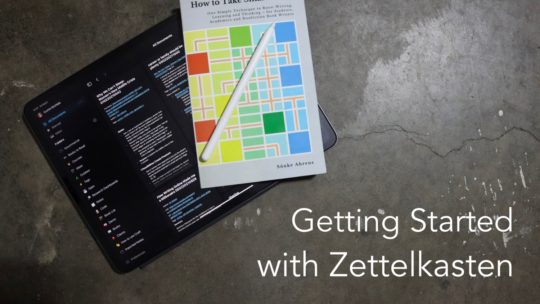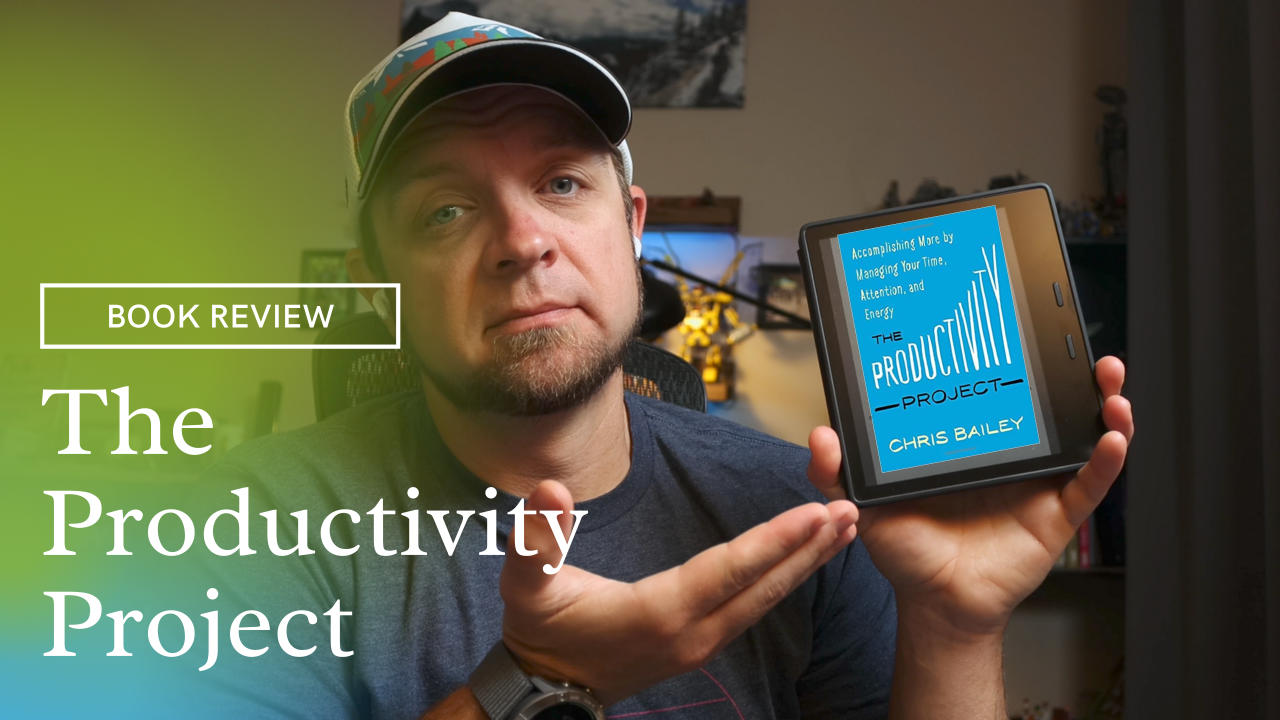What is the point of productivity books? For some, it’s really just productivity porn, a way to say you’re being productive as you read about getting stuff done. If that’s you then Chris Bailey’s The Productivity Project tells you early on that this is not the book you’re looking for. According to Bailey productivity is so that you can get stuff done effectively and have more time for the things that are meaningful in your life1. To aid in that lofty goal, he compiled the top 25 tactics he feels are effective on your quest to get the right work done2.
Measuring Productivity
Bailey says, and I agree, that the easiest way to measure productivity is to look back at your day and see if you completed the work you intended to complete3. If you can answer yes to this question, then you likely did a great job at being productive.
That does mean you have to understand what your highest value tasks are and that you need to plan those tasks onto your day4. I don’t think Bailey did a great job at helping you determine those important tasks, but The 12 Week Year does a very good job of that if you’re looking for more on how to determine what your most important tasks are.
Manage Energy
During the industrial era when people were simply cranking widgets butt in seat, time was a decent proxy for how productive you were. More time at work meant more widgets produced. Today in the knowledge economy that’s no longer the best measure of how effective you are at your work.
A better measure is how much energy do you have to direct at high-value tasks? Bailey talks briefly about the energy cycle, where you have more in the morning for a few hours. Then your energy dips for a bit and you have another smaller energy surge in the afternoon5. This lines up with When which is all about the timing of events and when you have the most energy.

Getting Started with Zettelkasten
If you’ve been wondering about what Zettelkasten is and how to start organizing your notes with this excellent system then this course is for you. I’ll walk you through how I use this system to develop my reading research for posts like this one here. You can also become a member to get all my courses.
$99 USD (30-day guarantee)
I use The Mullet Method of deep work to accomplish energy management. I focus down in the morning and have almost no distractions. The afternoon is devoted to my manager-level tasks of sorting tasks, communicating with those I supervise, planning out or bigger work tasks.
He also addresses why you procrastinate on hard tasks…because they’re hard[^Loc 922]. You get a similar dopamine reward from spending a day on a hard task as you do from sending a couple of emails. One takes much more investment though. Sending a bunch of emails also lets you use busyness as a proxy for productivity. Cal Newport talks about this phenomenon in Deep Work:
Busyness as a Proxy for Productivity: In the absence of clear indicators of what it means to be productive and valuable in their jobs, many knowledge workers turn back toward an industrial indicator of productivity: doing lots of stuff in a visible manner. 6
Bunch of Other Stuff
Those were the two strongest points of Bailey’s book. He does address the issue of the attentional space you give tasks, which is the space between tasks you give yourself to reset and focus on the next task7. He discusses this in the context of multi-tasking and how terrible it is for our ability to get anything of value done.
He tackles meetings with the idea that if you can’t stop thinking about other stuff, you probably shouldn’t be in the meeting anyway8.
He tackles sleep9 and overwork10, saying that if you work 80 hour weeks you’re on a short leash until you should have just worked 40 hour weeks because you lost so much productivity to overwork.
Bailey even addresses the distraction that the internet can beLoc 313011 and encourages to shut off distractions before they can happen. As I’m currently using iOS and iPadOS 15 beta I’ve found the focus modes to be an excellent resource for doing exactly this. I can be at work where I only get notifications from my wife and my coworkers. My friends talking about cycling don’t interrupt me.
Single White Dude Productivity
Unfortunately, it does feel like there is a fatal flaw with the book, it’s written by a single white dude. When Bailey talks about cutting distraction he has no word to a parent that works at home about how to handle the children coming in for many silly reasons and a few valid ones.
Many times Bailey also talks about taking breaks by flying to Europe12 during his year of productivity or between University years. He says this after also telling us that he had to move into his girlfriend’s house to make money work in the middle of his year off to learn about productivity.
Who can afford to take a year off to be “productive” with no monetary gain on the horizon? Someone with resources and privilege. Then in the midst of this, you can still fly to Dublin?
I’m a white guy, and by all measures of the world, I’m rich. Even by the measures of Canada, I’m very comfortable. I still found myself more than once looking at the advice given and wondering how on earth it applied to my life as a parent of three kids. My wife works evenings so I need to be done work in time to watch our kids, at least keep an eye out for blood.
I wonder how much would really apply to those that aren’t white guys that are at least relatively comfortable?
Should You Read The Productivity Project by Chris Bailey?
If you’re looking for a well-organized book with 25 tactics, this is a decent book on productivity. It covers a decent amount of ground but doesn’t get into the weeds.
If you’re looking to learn to manage your energy better then When by Daniel Pink is a much better-detailed book on the subject.
If you’re looking to cut distractions and learn to focus I’d suggest Deep Work by Cal Newport. If your struggle is specifically with digital distractions then Newport’s Digital Minimalism is a more complete read.
You can also checkout my What to Read pages for more recommendations.
If you’ve read a bunch in the productivity genre, then you’ll get a summary of the field with some good stories and extra ways of looking at ideas that may resonate with you. If you’re just starting to read about productivity, this is a good starting point to get you a survey of the field.
